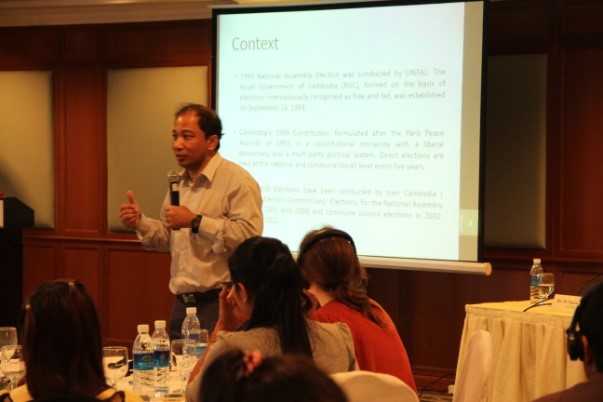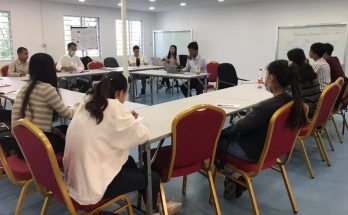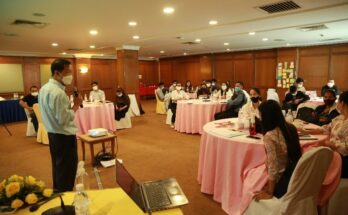 During July 2013, The Cambodian Center for Independent Media (CCIM) and Southeast Asian Press Alliance (SEAPA) organized a series of town-hall meetings and training sessions in Phnom Penh and Mondulkiri Provinces to cover a number of issues pertaining to freedom of expression and the upcoming national assembly elections in Cambodia.
During July 2013, The Cambodian Center for Independent Media (CCIM) and Southeast Asian Press Alliance (SEAPA) organized a series of town-hall meetings and training sessions in Phnom Penh and Mondulkiri Provinces to cover a number of issues pertaining to freedom of expression and the upcoming national assembly elections in Cambodia.
http://www.ccimcambodia.org/press-release/57-preparing-the-media-in-cambodia-to-monitor-elections
The meetings provided the opportunity for the public to express their views on the situation of freedom of expression in Cambodia, as well as to hear from expert guest speakers who shared their knowledge and experiences. Guest speakers included Ms. Keo Dere, from Committee for Free and Fair Eelection in Cambodia (Comfrel), Mr. Ichal Supriadi from Asian Network for Free and Elections (Anfrel), Mr. Koul Panha (Comfrel), Mr. Wishnu T Hanggore from SEAPA. A total of 110 participants joined the town-hall meetings and journalist trainings, including 35 females.
Mr. Koul Phanha (Comfrel) said:
“It started from the registration process until the election campaign.
What we are seeing in the atmosphere in the pre-election period was deduction violence. Until now, no one has been killed in this pre election period. This is a good development. However, there are still fears and concerns. Some people have been traumatized, which means when the authorities and police start to use strong language, it scares people. It particularly effects the older generation (from 40 years old and up). Some discrimination is happening as well, which also scares people. That’s why the Cambodian People Party’s strength is to make the people see the importance of the security, which is used as a tool in the election. Those who get easily scared, they can be affected to vote in a certain way.”
The Question & Answer sessions at these meetings allowed the public to address guest speakers and the points raised during their presentations, as well as to ask questions about freedom of expression in Cambodia, the voting process and the election. Attendees were also able to express their opinions and experiences regarding reporting on the upcoming election. The issue of safety was raised throughout the Q&A session as a primary concern for journalists and their sources, and advice from Mr. Nop Vy of CCIM was to “go to the NGO of Human Rights Protection to understand what can be done if you are threatened”.
 Training sessions focused on similar issues. Trainings were broken down into three sections for trainee journalist’s learning purposes; i) the challenges for media in Cambodia in covering the elections; ii) ethical and professional reporting standards; and iii) how to practice investigative reporting. The topics were chosen due to the relevance for reporters in covering political and electoral processes and events. Professional journalist trainers from the Department of Media and Communication, Royal University of Phnom Penh, Mr. Moeun Chhean Nariddh and Mr. Chhay Sophal, shared their knowledge about the methods of writing investigative reports on elections as well physical protection during reporting and investigating.
Training sessions focused on similar issues. Trainings were broken down into three sections for trainee journalist’s learning purposes; i) the challenges for media in Cambodia in covering the elections; ii) ethical and professional reporting standards; and iii) how to practice investigative reporting. The topics were chosen due to the relevance for reporters in covering political and electoral processes and events. Professional journalist trainers from the Department of Media and Communication, Royal University of Phnom Penh, Mr. Moeun Chhean Nariddh and Mr. Chhay Sophal, shared their knowledge about the methods of writing investigative reports on elections as well physical protection during reporting and investigating.
The reporters took this opportunity to voice the challenges they face as journalists, and to voice what changes they would like to see in the future. These challenges included; discrimination against female journalists, a lack of ID cards for reporters, a lack of support from the public and the dangerous nature of the job.
The discussion on challenges in reporting was followed by a presentation on how to report accurately on the upcoming national elections. The presentation outlined guidelines for journalists, the role of a journalist, and ethical obligations for election reporting.
The trainee journalists were then divided into groups to discuss different articles, to work together to find related concerns within the articles, and to discuss how these challenges could be overcome. This session raised issues relating to the sanctity of protecting sources and ensuring that permission is given before using source names, whilst remembering that using ‘anonymous’ as a source reduces the weight of a quote, and is undesirable for journalists if it can be avoided. Trainees were also instructed on the correct way to conduct interviews when reporting, and given advice on how to make sure their articles are accurate.
There were many important lessons shared with the journalists to help them become a voice for the Cambodian people and to ensure that corruption is not a part of reporting. Feedback on the training sessions was positive, with a representative from TV Bayon saying he received new and very useful information on how to report on the election. A representative from Kampuchea Thmey stated that he had gained a lot of valuable knowledge from the training sessions. There was also a request expressed by several journalists, including one from provincial TVK, for additional training sessions in writing techniques, with a suggestion put forward to run additional trainings in the near future.
The national assembly elections took place on Sunday 28th July, 2013. During the elections, 1082 national and international journalists, from 119 difference NGOs and media organizations, registered with the National Election Commission to cover and report on the election.
CCIM and SEAPA found that these sessions were a great success and would like to thank all the guest speakers who attended as well as the journalists who offered their opinions and thoughts on the current media situation in Cambodia.



